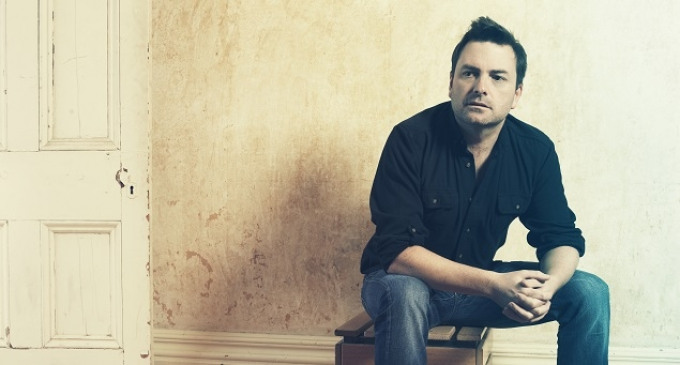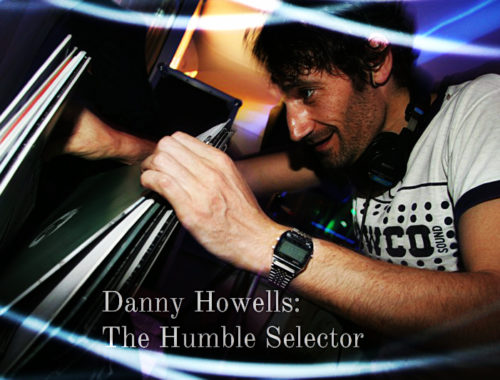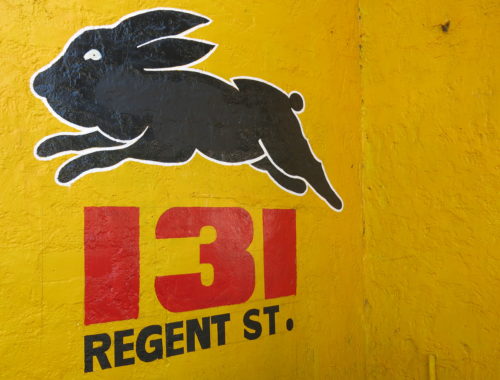If you were serious about clubbing in Australia from 2001-2014, chances are you spent a fair chunk of the five days between weekends trawling the pages of inthemix.com.au.
Like many, I met some of my best friends on the site’s forums – first in Brisbane, then Sydney once I’d relocated to edit the beloved dance music weekly 3D World. We restored a degree of editorial prestige to the old girl, but its revenues were under sustained assault from digital and social media and it ultimately went to the great kick-on in the sky… but that’s another story.
In one of those weird cyclical synergies of the media, a former ITM editor wrote for me at 3D World, as did the man who took the helm of ITM in 2013 – and as I was freelancing then, he tapped me to write features for him. The circle of life, etc etc.
Anyway, like many I was shocked to wake up on November 1 2018 to discover ITM had been deep-sixed while I slept. That it had been closed wasn’t the shocking part, but the fact that the site’s entire archive had been nuked from orbit overnight was a little disheartening.
Hopefully it lives on somewhere. (Apparently it does! But I digress…) In the meantime, I’m rebuilding some of my favourites from ITM here for posterity.
Sadly the excellent, release-worthy mix attached to this instalment of the Flashback series has also gone missing, but you can still catch some cracking sets from my mate Jaytech (2007), Nick Thayer (2005) and Boogs (2004) over on SoundCloud. For now, at least…
Flashback to 2002: Ivan Gough and the Melbourne prog sound
Before Dirty South and co took their dirty electro to the world and long, long before the Melbourne bounce was a twinkle in the eyes of Will Sparks and his co-conspirators, the dance music sound drawing the world’s attention to the Victorian capital was a far deeper proposition.
Progressive house’s reign over clubland had struck a particularly strong chord with a collective of DJ/producers centred around the Sunny nightclub and DMC Records in Prahran. They tapped into the lingering remains of pre-millennium tension, crafted a dark, drum-driven sound that attracted the notice of DJs like John Digweed and Sasha – then at the very top of the dance music world – and unfortunately timed their run with the imminent decline of prog and financial impact of widespread illegal downloading.
Ivan Gough was one of producers at the epicentre of the Melbourne prog sound of 2002. In fact, as the main studio man of Zero Tolerance Recordings – the highly influential record label which ran from 1998 to 2004 – you could mount a case for Gough being the sound’s most influential figure, particularly as he enjoyed releases alongside Olivier (as Deep Funk Project), Phil K (as Dark Alley) and Luke Chable (as Digital Mind Control) in 2002 alone.
A dozen years down the track and Gough’s international profile has never been bigger, though the song most definitely is not the same. Dark prog is long gone as Gough has charted a sonic course somewhere between Eric Prydz and main room EDM, collaborating with local artists such as Feenixpawl (In My Mind) and Nervo (No Taking This No More) in the process.
But the passion for his first musical love still runs deep. “You can’t escape the dark beat, my friend,” says Gough towards the end of his freewheeling conversation with Inthemix, during which he talks himself into getting the Zero Tolerance band back together for a club night to celebrate ten years since the label’s demise and lets slip that he and Chable are eyeing off some studio time together.
Is it true that you were the main man in the studio for Zero Tolerance while that label was running?
Yep, absolutely. There was a bunch of guys who were doing stuff – Jason Digby, Gab Oliver, Phil K, Jono Fernandez was involved on the side. But I ran the studio that we had there. We had quite a large analogue mixing console and a bunch of gear, and I used to mix down a lot of tracks for people. I bought a mixing console – it was second hand, and it came from the Arts Centre here in Melbourne. I got it for a ridiculous price because they just wanted to get rid of it, they’d bought a new one. So anyway, this thing weighed around 350 kilos, so I had to get my old man to build up a frame for it – we had to use a special crane to lift it in through the window of the shop to get it in on the second floor. It took about seven blokes to get it down the corridor and set it up, and that was the console we mixed on for the next five or six years.
Zero Tolerance was building up a fairly strong reputation in 2002 – there was a lot of quality music coming out of that room at the time.
Yeah, it was good times. In fact, I miss it – I really do. With all of this big room stuff going around the clubs at the moment, there is a lack of innovation amongst a lot of people. There is a tendency for producers to go after the quick dollar and not necessarily try anything different. The amount of people that come to me today and pat me on the back and say ‘you know what, that was something special going on back there’ – yeah, I guess it was. Unfortunately for us, financially it didn’t make sense in the end. We were struggling, there was a lot of illegal downloading taking off, and we were having trouble making any money off the label. But they’re days I remember very fondly.
What do you think was behind that deep and dark sound that was happening – not just on Zero Tolerance, but with a lot of the production in Melbourne at the time coming out on EQ and Vapour?
The music that has always been closest to my heart is proper progressive house – late night music, melodic, not necessarily vocal-driven, certainly not big chords and that sort of stuff. I guess when we got to the studio, we just tried to emulate that feeling. We used to call it ‘haunted house’, because at the time we didn’t really think there was anything else worldwide that sounded like it – it was pretty unique what we were doing. It also had a scary undertone, which in the end made the music harder to sell. There were some people who loved it, but for a lot of people it was just too dark. As to where it actually came from, I’m not really sure. I think it was just a product of the time and certainly the club, Sunny, had a big influence on it. That nightclub played a fairly dark, tribal sound, so we just plugged into that and took it as far as we could.
There seems to be a real sense of space to the music on Zero Tolerance as well.
I think that was created by the way we produced it, and the fact that we were always trying to put less instruments in. There was never this ‘let’s stack up multiple sounds’, it was always ‘let’s put a couple of sounds, let’s put one synth in here’. We had a minimal kind of aesthetic, I suppose. You look at a track like 2 Heavy – the success of that track is based on a drum loop and one synth chord that opens in the middle of the breakdown. The rest of the record is simple and straight, but it works a treat.
Of the producers going around Melbourne at that time, was there anyone who everyone looked at as the leader?
Probably not. For our sound, for what we were doing, there were key people. Obviously I was one of the key people – mixing, producing – Phil K had a lot to do with it, Gab. Phil and Gab both worked in the shop [DMC Records] downstairs. The thing about Phil particularly, Phil is always looking for the next big thing. Working in a record store, a couple of times a week when we got a new shipment in we’d get a bunch of new records from overseas. We would be in the studio sometimes until like 2 or 3 in the morning, and midnight would come and Phil would say ‘come downstairs, I’ve got to play these new records’. We’d be halfway through a record, go downstairs and listen to half an hour’s worth of music, and then come back upstairs and start producing the track differently.
There’s a quote from Luke Chable on Resident Advisor from 2002 saying, “Working with Phil & Ivan is always a laugh. If you walked in the room in the middle of it you would think we are quite loony.” What was the working situation like?
Phil and Luke together are mentally incapable of not doing anything. So if I’m in the middle of mixing something and mucking around with a drum sound or something, they will just start setting fire to things, drawing all over my shirt, they would go mental. They’re both like flies in a bottle – if they don’t have something to do, they’ll find something to do.
Chable was really hitting his stride around that 2002-2003 mark – everything he touched was turning to gold around then.
I think Luke was an unfortunate victim of the death of prog, if you like. It was interesting that you guys asked me to do a 2002 retrospective – I’ve included late 2001 and some early 2003 things on the mix, and that was for me the last hurrah for that era of prog. Luke was one of the top two or three producers in the world that year. Every time he played me tunes, I’d just go ‘why aren’t you a superstar?’ At the time, people started gravitating away from prog. It was around the time that electro started to become popular. You had tracks like Fischerspooner Emerge, it was around the time that Tiga and those sort of acts started to become successful. And I think it was part of the reason Luke was never as successful as he should’ve been. I think it was part of the reason Zero Tolerance folded. People just got sick of the prog sound and were looking for other things.
That era does get frowned on a little now, particularly the dark, tribal, ‘bog prog’ sound.
It was a tough time for prog. The music that I loved and the music that I staked my career on stopped being popular. I remember we were running a progressive night in Melbourne on a Friday night, and for all intents and purposes we had an amazing line-up – there was Sean Quinn and Kasey [Taylor], there was me, Phil K, Luke Chable on rotation. It was a great night, but no one came. I think it was around that time that we had to get used to the idea that we might need to do something else. It was a good time, it was a tough time, but I have a lot of fond memories from that era. For me, I’ve always believed that a successful life is just the art of being part of something. And it’s good to know I was a part of that. I still have a lot of friends from that era, I still see Phil running his Slow Motion nights down in Melbourne, I respect them immensely. The people that I worked with back then, they had great taste in music and pushed me to be a better producer. It’s tinged with a bit of sadness that we couldn’t make it work financially, but they were good times anyway.
So did you see the writing on the wall for that sound and start moving towards what you were doing with TV Rock a couple of years out from 2005?
We crossed over and probably fell on our sword a little bit at one point, but initially TV Rock was just a housier version of that. But I did see the writing early on. I struggled with it because I couldn’t pay the bills – I had my wife paying for everything at one point, and I went, ‘I can’t live my life like this. No matter how hard I try, it’s not working. I’m not financially secure like I should be.’ I was working two or three nights a week in commercial joints in Melbourne paying party music just to pay the bills, and the reality was setting in. The old prog crowd were struggling because there wasn’t a lot of nights for them anymore, people were moving on, the music was changing, and that upset a lot of people. It upset me at first, too, but I just went with the flow. I thought ‘what can I do to make some money and get a career going again?’, and I moved on.”
inthemix Flashback mixes: 2002 mixed by Ivan Gough
- Trafik – Your Light (Luke Chable’s Vocal Breaks Mix)
- Deep Funk Project – 2 Heavy
- Goldtrix presents Andrea Brown – It’s Love (Trippin’)
- Narcotic Thrust – Safe From Harm
- Layo & Bushwacka! – Love Story
- North Atlantic – Lights Out (Lemon 8 ‘Lights On’ Remix)
- Way Out West – Mindcircus
- IIO – Rapture (John Creamer & Stephane K Remix)
- Oscar G & Ralph Falcon – Dark Beat
- Origene – Sanctuary (Ivan Gough Remix)
- Tomaz vs Filterheadz – Sunshine




